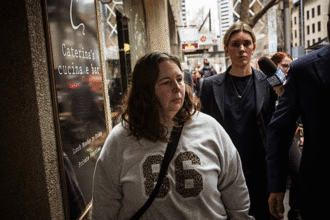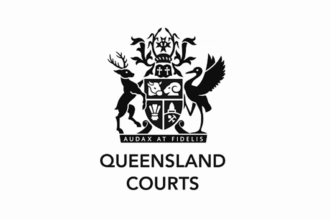A Culture of Gambling, A Family’s Tragedy, and a Nation at a Crossroads
- How Did Gambling Become So Embedded in Australian Culture?
- What Is Causing the Delay in Reform, and What Are the Political Implications?
- How Deeply Is Gambling Embedded in Australian Culture?
- Why Is Gambling Not Treated as a Public Health Crisis?
- Is the Gambling Industry Unduly Influencing Policy Decisions?
- Why Do Gambling Warnings Fail to Deter Addicts?
How Did Gambling Become So Embedded in Australian Culture?
Sam was raised in an Australian town where betting permeated the society almost as much as the sport itself. For his sister, Amy—a pseudonym to preserve her identity—the sad tale of his brother was greatly influenced by the fact that gambling permeated everyday life. Looking back, she thinks Sam’s addiction and the extreme pain he went through before he ended his life finally resulted from Australia’s normalization of gambling.
“Oh, who are you betting on this week?” our acquaintances ask our family. That was the usual dialogue, Amy says. It wrecked him emotionally and physically. Though we knew nothing about how horrible it was, we were a tight family. It flattened him.
A nonpartisan parliamentary investigation on the terrible effects of gambling in Australia helps to highlight numerous stories like Amy’s. With more per capita wagers than any other nation, this one has become a worldwide hotbed of gambling addiction. The investigation exposed a startling lack of protections for individuals fighting addiction and proposed 31 changes, including a gradual ban on gambling advertising to stop the “grooming” of a new generation.
What Is Causing the Delay in Reform, and What Are the Political Implications?
With the inquiry’s results, Prime Minister Anthony Albanese is under increasing pressure. According to polls, most Australians agree with more forceful policies like a ban on gambling marketing. The government seems reluctant to intervene, though, and instead signals it may choose to cap advertising. According to Albanese’s government, the uncertainty arises from casino ad income’s significant contribution to helping the nation’s ailing free-to-air broadcasters. A prohibition might also drive users into offshore platforms, causing substantial revenue losses for the Australian economy, which now gains from taxes on local betting sites.
The leading association representing Australian wagering businesses contends that a complete prohibition is “a step too far.” “By limiting ads, we would meet community expectations to see less gaming promotion while maintaining crucial support to sporting codes and local broadcasters,” said Responsible Wagering Australia CEO Kai Cantwell.
Critics counter that the power of corporate interests is stifling required reform. Amy finds it incomprehensible that the government has yet to respond. “Everyone who recognizes this problem would agree to a complete advertising ban,” she says. Those lobbyists seem to own the government. We normalize this deadly substance and present it to everyone; the worst-case situation is what happened to us. My family is never going to heal.
How Deeply Is Gambling Embedded in Australian Culture?
In Australian society, betting has a unique and potent position. First, to deregulate its gaming sector in the 1980s, the nation let slot machines—also called “pokies”—travel from casinos into bars and clubs. Australia boasts a fifth of all the world’s pokies despite just 0.33% of the global population today. Together with the fast expansion of internet betting, this liberalization has made gambling a mainstay of Australian life.
The figures are unbelievable. With an estimated 38% of Australians weekly gamblers, Australians spend over A$25 billion yearly on legal wagers. Experts contend that clever marketing and generous sponsorships with athletic organizations have legitimized and even glamorized the behavior.
Sean (also a pseudonym) has been compulsively gambling for more than 18 years and is one of many impacted by the acceptance of gambling. Sean’s youthful introduction to sports betting soon spun out of control. “Some days I could not sleep unless I had a bet on,” he admits. “It got to the point when I was betting on sports I’d never seen in countries I’d never heard of.”
Now 36 and undergoing treatment for his addiction, Sean estimates his overall losses to be quite close to A$2 million. His personal life has suffered even more difficulty in measuring, though. “If I never gambled, I would be married with kids right now,” he says regretfully.
Ninety per cent of Australian adults and over three-quarters of eight —to sixteen-year-olds saw betting as a “normal part of the sport.” Proponents like Martin Thomas contend that this number shows how profoundly gaming has crept into Australian culture. “Our children know just as much about the odds on a game and multi-bets as they do their favorite players,” Thomas notes.
For Amy, this normalizing produced a perilous undertext. “It makes it harder for people of all ages to escape gaming,” she says. “This message holds that you are responsible if you have an addiction. My brother believed that as well.
Why Is Gambling Not Treated as a Public Health Crisis?
Like many other supporters, Amy wants to see gambling viewed as a public health concern rather than a leisure pastime. According to studies, about half of the individuals who gamble are either already suffering from or in danger of related adverse effects, including financial difficulty, domestic violence, despair, and even suicide. For them, the first step in tackling this situation is banning gambling advertising.
Australia has overcome such difficulties in the past. In 1992, the nation outlawed tobacco advertising, a decision attributed to sharply lower smoking rates. Advocates like Thomas contend that a similar strategy would work well for gaming. Prime Minister Albanese has refused to commit to a specific action plan, even though he admits the “untenable saturation of gambling advertising.” Instead, he has cited other government projects, including outlawing credit card use in internet wagering and building a self-exclusion registry for betting venues.
Albanese has also presented gaming as an ancient problem. “This has been a problem in society, I suspect, since man and woman walked and had a bet on who could ride the horse fastest or who could run from rock to rock,” he said.
Is the Gambling Industry Unduly Influencing Policy Decisions?
Correct Wagering Australia supports the government’s suggested ad restriction, balancing media and community concerns while preserving financial support for sports and entertainment. Critics, like marketing instructor Dr Andrew Hughes of The Australian National University, wonder how important gambling money is. Nielsen data shows that most broadcast advertising money originates from other industries.
Publicly endorsing a complete ban on casino advertising, Independent Senator David Pocock questions the morality of funding the media with money from a negative sector. “Journalism is tremendously important, but it shouldn’t be dependent on flogging products we know are harmful, which cause addiction, personal issues, family breakdowns, and in some cases, suicide,” he added. “The government should have the imagination to examine other ways of plugging that gap.”
Pocock is among senators who have questioned whether the businesses they support or betting corporations influence legislative choices. Last week, he signed an open letter endorsing a complete ban on gambling advertising with twenty legislators from all political backgrounds. The letter also demanded a free vote, enabling MPs of Albanese’s party to cross the floor without consequences.
Furthermore, medical groups and a government-appointed expert panel looking at ways to lower domestic violence rates in Australia are supporting the demand for a ban. Amy finds the ongoing argument to be too taxing to follow. Angered by the sluggish rate of change, she comments, “It’s insensitive. “Based on the data, everyone who recognizes this problem would agree to a complete ban on advertising.”
Why Do Gambling Warnings Fail to Deter Addicts?
Currently running warnings on gambling commercials, the Australian government reminds viewers of the dangers. For people like Sean, who are firmly hooked, these cautions have little effect on stopping destructive conduct.
Sean says, “I know the house usually wins, but every time I’m ready to have a punt, it all goes out the window. I begin to consider that I am about to execute that one win that will separate me from others. That victory will bring the all-around back off.
For families like Amy’s, the stakes can be insignificant even though everything is still being determined, and Albanese’s cabinet is still weighing its choices. “We are normalizing this risky product and hanging it in front of everyone,” Amy explains. The worst-case situation is what occurred to us. My family, we will never be well. You cannot get well from this.







